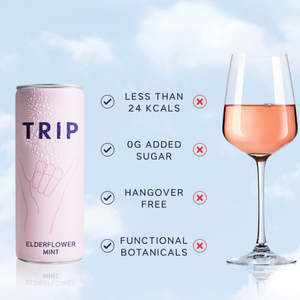Why is it important to get a good night’s sleep
During sleep your body gets the necessary time to restore itself. This time of rest and recuperation gives you the energy you need for the next day. Sleep ensures muscle growth, recovery, supports your immune system preventing illness and also allows you to form memories and process information from the previous day.
Not having this valuable time for restoration, can lead to increased aches and pains, lack of energy, fatigue, loss of coordination and make you more susceptible to illness. Not getting enough sleep can also cause you to eat more and gain weight, as without sleep your body decreases the production of a hormone that indicates fullness and increases production of an appetite-inducing hormone. Additionally when you are more tired you require more sustenance to make it through the day.
Having good quality sleep not only allows for your physical health to improve but also supports your mental health. Sleep is essential for various aspects of brain function, this includes cognition, productivity and concentration. Having a good night's sleep can maximise problem-solving skills and enhance memory. Whereas on the other hand, a poor night’s sleep can make you drowsy, makes it very hard to concentrate and can even affect your ability to interact socially.
What affects sleep?
There are so many different factors that affect sleep, ranging from the environment in which you are winding down in, to the food and drink you have consumed over that day.Common causes of bad-quality sleep are:
-
Caffeine - consuming caffeine (even in tea!) can lead to disrupted sleep.- Smoking - nicotine is a stimulant which can make it harder for smokers to get some rest.
-
Not enough food - food deprivation can cause wakefulness.
-
Light - if you are struggling to fall asleep, making sure to have a dark space in which to fall asleep can be really important.
-
Screens - whether your phone or your laptop, the blue light given off my screens stimulates your brain and can make it harder to get quality sleep.
-
Temperature - if you are in a hot or stuffy room it will be harder to sleep, try and create a cool well ventilated environment.
-
Jetlag - a change to your body clock can disturb our sleep timings, reducing the quality of our sleep until our bodies adjust.
-
Anxiety & Stress - our bodies are built so that we can stay awake when we feel there may be impending danger, this means that when we are feeling stressed or anxious we often find ourselves lying awake at night.
In particular anxiety and stress is commonly cited as the reason for a bad night’s sleep. Especially after the events of the last year. TRIP carried out a sleep survey earlier this year including 1000 Brits and found that 2020 was the year that the UK slept worse than ever, due to the fact that 7 out of 10 people had the most stressful year of their lives! With 85% of people cited that the stress of lockdown had negatively affected their sleeping patterns.
How to get better quality sleep:
To feel your best during the day, you need to sleep well at night. Sadly there are no quick fixes here, but there are some natural remedies and small habit changes that may be able to support your sleep.
Firstly create a restful environment for sleep:
Spend time making your room ideal for sleeping. This often means cool, dark and quiet. Make sure the room is well ventilated, make sure your curtains are pulled shut and that the room is free from distractions so that you can wind down and chill out. Try to leave your phone or any screens in a different room as these can disturb the sleep oasis you are creating for yourself!
Stick to a sleep schedule:
Being consistent reinforces your sleep-wake cycle (Mayo Clinic 2020), try to stick to your sleep schedule as much as possible. Try to go to bed and wake up at the same time everyday, and try to limit the variation in this by only an hour. This way your body clock knows when it is time to wind down and set you up for a good night’s sleep.
Consider what you eat and drink:
In the hours leading up to bed time, try to be mindful of what you are putting in your body. Too little food can cause wakefulness and large filling meals could bring discomfort during the night.
As mentioned above, nicotine and caffeine can also keep you awake so perhaps try reducing your intake of these in the hours leading up to bedtime!
Exercise during the day:
Physical exercise can tucker you out in just the right way to get a good night's sleep and has been shown to promote better sleep. This could just be a short walk outside, or around the block at lunchtime. Getting outside during the day has also shown to be helpful in improving your overall wellbeing.
Manage your worries:
Often our worries about the day’s events or the upcoming day can keep us awake at night. One helpful tip is to have a notepad by your bed and jot down any worries or actions for the next day that spring to mind - so that you know you are able to deal with them in the morning.
When it comes to worrying, practicing mindfulness or carrying out meditation can also be really helpful.
Try some CBD:
Our ECS (endocannabinoid system) helps bring our bodies back into balance, relating to stress, anxiety, pain, inflammation, our immune system and even our sleep.
CBD may be able to help you find your calm before you drift off to sleep after a busy day. CBD comes in a variety of different formats, so whether you grab a CBD drink or a few drops of CBD oil, it may be the perfect natural way to unwind
In TRIP’s 2021 Sleep Survey 78% of people said they would be willing to try CBD to improve their sleep quality, with many already having tried it and talking about its benefits.


















